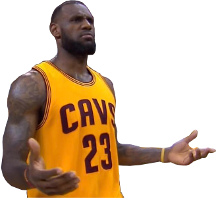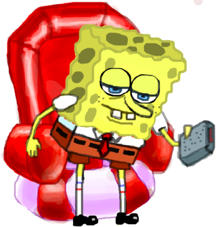The octopus, as the name literally says, is an animal with eight legs. In Dutch we prefer to say eight arms to eight legs, but that's something you can question as well. In the recently published book 'How many legs does an octopus have' by Flip van Doorn and Jonah Kahn, in which the many 'useless' people from this newspaper are bundled, it is argued that the octopus in fact only has two legs. Of the eight extremities, two are used to move around, i.e. as legs; the other six are for eating. These are arms and not legs. By the way, one of those six is occasionally used to inseminate the female octopus. A kind of temporary p****. Tentacle, leg, arm or p****, eight is quite a number. The octopus is therefore a many-armed monster, but that applies to all squids. Also the cuttlefish, squid, argonaut, nautilus and extinct ammonites are or were provided with many extremities, often even more than eight.
This excess has led us to use the octopus as a metaphor for something or someone who has fingers everywhere. So it was striking when earlier this week the Japanese company Mitsubishi was portrayed in the newspaper as a huge bright red octopus. Mitsibishi makes just about everything we can imagine in the technical field, from tanks and cars to stoves and air conditioners. And now they have taken over the energy supplier Eneco, originally from Rotterdam. Mitsubishi has another tentacle and threatens to become a decapus, a dodecapus or even a multipus.
Each arm has its own set of brains
I do have a little bit to do with the octopus. The animals didn't deserve that negative metaphor. Octopuses are molluscs (Mollusca) and therefore related to such seemingly simple creatures as the mussel and the slug, but within the molluscs the octopus or cephalopods are an evolutionary highlight. The animals have two lens eyes with which they can see very well and they also have a highly developed nervous system with several sets of brains. An octopus is said to have five hundred million nerve cells, about the same number as your dog. More than half of these are in the eight arms, which are in fact autonomously operating organs that can operate without central control. Each arm has its own set of brains. With this decentralized nervous system and using its sublime vision and the tactile sense of the suction cups, an octopus can open pots with a screw lid to get to a bite, gently grab prey, and even use objects as tools to get to something. The animal can adjust the colour of its body to its surroundings. What the great apes and people within the mammals and the crows within the birds are, are the octopuses within the molluscs: animals with a high intelligence.An octopus, on the other hand, cannot predict the results of football matches, as has been assumed. Whether the mollusc is also able to successfully manage a large energy company like Eneco will have to be determined in the future.
 ROVO
ROVO I’m not reading all that op
I’m not reading all that opSucks for you bro cause it’s an interesting read.
If you’re ever faced with a contract or business paperwork in your adult life don’t take this approach
 Magician
MagicianSucks for you bro cause it’s an interesting read.
If you’re ever faced with a contract or business paperwork in your adult life don’t take this approach
Eh just read it it’s not that interesting
Only cool part is that each arm is autonomous
 ROVO
ROVOEh just read it it’s not that interesting
Only cool part is that each arm is autonomous
It’s about Mitsubishi buying out an energy company for 4 billion
 Magician
MagicianIt’s about Mitsubishi buying out an energy company for 4 billion
Idrc about that
The octopus, as the name literally says, is an animal with eight legs. In Dutch we prefer to say eight arms to eight legs, but that's something you can question as well. In the recently published book 'How many legs does an octopus have' by Flip van Doorn and Jonah Kahn, in which the many 'useless' people from this newspaper are bundled, it is argued that the octopus in fact only has two legs. Of the eight extremities, two are used to move around, i.e. as legs; the other six are for eating. These are arms and not legs. By the way, one of those six is occasionally used to inseminate the female octopus. A kind of temporary p****. Tentacle, leg, arm or p****, eight is quite a number. The octopus is therefore a many-armed monster, but that applies to all squids. Also the cuttlefish, squid, argonaut, nautilus and extinct ammonites are or were provided with many extremities, often even more than eight.
This excess has led us to use the octopus as a metaphor for something or someone who has fingers everywhere. So it was striking when earlier this week the Japanese company Mitsubishi was portrayed in the newspaper as a huge bright red octopus. Mitsibishi makes just about everything we can imagine in the technical field, from tanks and cars to stoves and air conditioners. And now they have taken over the energy supplier Eneco, originally from Rotterdam. Mitsubishi has another tentacle and threatens to become a decapus, a dodecapus or even a multipus.
Each arm has its own set of brains
I do have a little bit to do with the octopus. The animals didn't deserve that negative metaphor. Octopuses are molluscs (Mollusca) and therefore related to such seemingly simple creatures as the mussel and the slug, but within the molluscs the octopus or cephalopods are an evolutionary highlight. The animals have two lens eyes with which they can see very well and they also have a highly developed nervous system with several sets of brains. An octopus is said to have five hundred million nerve cells, about the same number as your dog. More than half of these are in the eight arms, which are in fact autonomously operating organs that can operate without central control. Each arm has its own set of brains. With this decentralized nervous system and using its sublime vision and the tactile sense of the suction cups, an octopus can open pots with a screw lid to get to a bite, gently grab prey, and even use objects as tools to get to something. The animal can adjust the colour of its body to its surroundings. What the great apes and people within the mammals and the crows within the birds are, are the octopuses within the molluscs: animals with a high intelligence.An octopus, on the other hand, cannot predict the results of football matches, as has been assumed. Whether the mollusc is also able to successfully manage a large energy company like Eneco will have to be determined in the future.
 ROVO
ROVOIdrc about that
You don’t care about the energy sector of a few European countries and the company’s plans to expand through off shore wind farms?

 Magician
MagicianYou don’t care about the energy sector of a few European countries and the company’s plans to expand through off shore wind farms?

no
